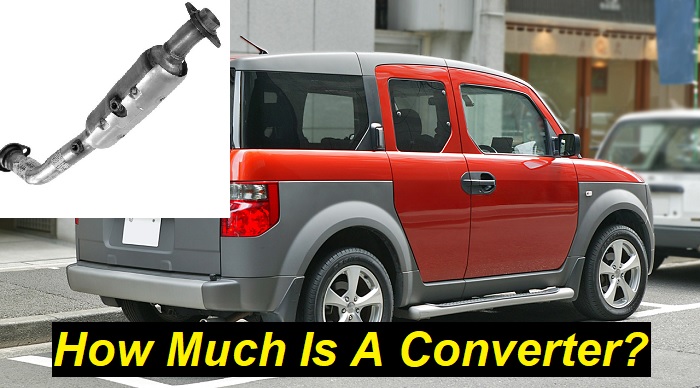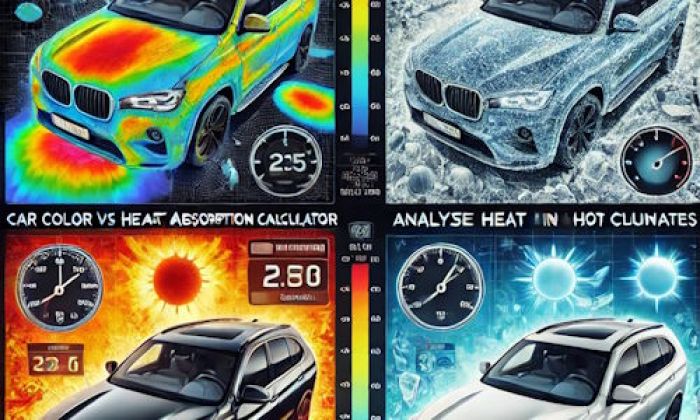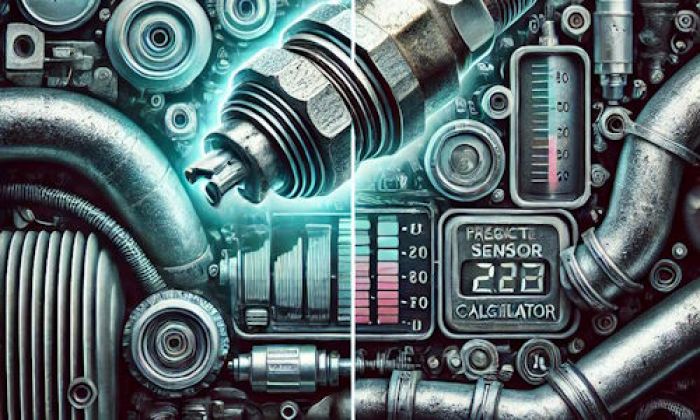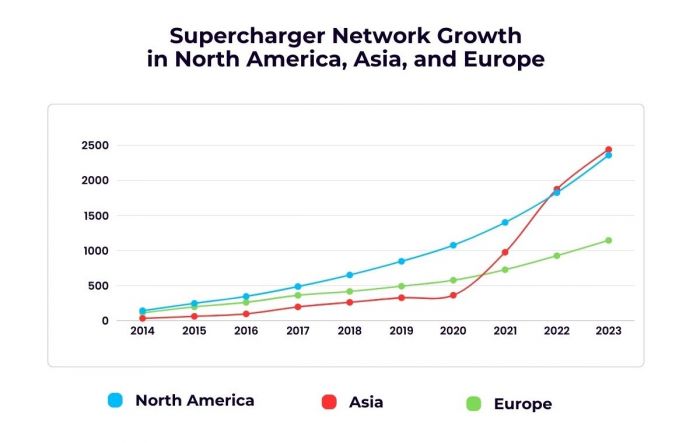The catalytic converter business is thriving. Companies and people who buy and sell converters as scrap keep earning money. But how can you earn if you have an old catalytic converter from a Honda Element in your hands? First of all, please make sure this is your converter and you can sell it to a recycling company who will obviously ask for some documents proving that you own a Honda Element.
We warn you because now catalytic converter theft is very popular. But we should tell you that it doesn't make any sense because you can only sell a stolen converter to a half-legal scrapyard for a couple of dollars. Everything that we say in this article can only be applied to a situation when you own a car with a scrap converter.

Here's what we are going to tell you today:
- What kind of converters do Honda Elements have?
- How much should a scrap converter from the Element cost?
- What are good and bad ways to sell your cat converter?
- How much is it to replace a cat converter on a Honda Element?
Let's get started!
What kind of converters do Honda Elements have?
Honda Element was sold with a single engine (K24) - the 2.4-liter gasoline engine with optimal power and torque for this vehicle. This engine has one catalytic converter. Although we met a lot of claims that these SUVs have two converters, this is not true. They have a single converter which is quite big and is thought to be valuable.
But these converters have one problem. They usually don't have the serial number and Honda logo on their bodies. This makes it harder to distinguish between an original cat and an aftermarket part. Many scrapyards will not buy this catalytic converter or will offer a very low price for it.
Here's what you should know about the Honda Element old cat:
- original converters are quite big, they have a size of a big fire extinguisher and actually, look like it;
- they are also relatively heavy because of their contents, if your converter is light, you probably have an aftermarket part;
- the original converters come integrated into the exhaust pipe - no welding tracks should be seen around the converter;
- the original cats usually don't rust all over the surface and don't get holes because of the rust issues;
- these parts don't rattle when you shake them - rattling may mean that the converter is of very low quality or it's broken completely.
You may be sure that the converter is original if you have owned this car since you bought it new from a Honda dealer. But your confidence doesn't mean that all buyers will believe you. They will thoroughly check if this converter is actually an OEM Honda part.
Fortunately, experienced buyers will easily distinguish between an aftermarket cheap part and an original part. You will only need to find these experienced buyers. The question is whether you want to earn more money with your converter. Because sometimes people don't care about a hundred bucks or something like that and they just don't want to spend their time selling a scrap cat.
How much is a scrap catalytic converter from your Honda Element?
The original catalytic converter from a Honda Element that is still in a good condition and doesn't look like destroyed should cost around $200 or even sometimes more. The final price offer will depend on many factors. But we wouldn't sell this thing for less than $160 even if the market prices are low and the condition of the converter is not the best.
You may wonder why companies agree to pay so much for a piece of scrap metal that doesn't work anymore. The answer is simple - this cat contains some precious metals:
- up to 7 grams of platinum;
- 5-6 grams of palladium;
- 1 or more grams of rhodium.
Platinum costs $35 per gram on average, palladium is twice more expensive, and rhodium is over $600 per one gram. It means that a recycling company may sell precious metals for more than $1000 after dealing with this converter. So, why don't they pay more than $200?
The price of your old converter depends on some important factors:
- The year of your Honda Element. Up to 2007, Honda used one type of converters on Elements, then after 2007, they started using a little different type.
- The condition of the converter. If it's rusty, damaged, half-empty, or whatever, the price will be lower. The most precious part is the ceramic honeycomb inside.
- The price for precious metals. You may know that the market price for metals tends to change all the time. It can go up and down even during one day.
- The number of cat converters for sale. Sometimes, catalytic converters don't sell because there are a lot of them on the market and the demand is not that high. But in a month, everything can change dramatically.
- The way you sell your Honda converter. One company can offer you $50, while some other business can buy your old converter for $250.
You should be careful when selling your old converter. We know many cases when people just went to a local scrapyard with their old converters and sold them for $10. Scrapyards' workers don't care much if you have an original converter or not, they will only want to make money with your converter. In most cases, they will just resell your cat and make money on it.
You should think of some other ways to sell your Honda Element catalytic converter.
Where can you sell the Element cat converter at a good price?
We can think of at least two ways of selling your catalytic converter from the Honda Element at a good price: private buyers or recycling companies. When saying "private buyers", we actually mean middlemen. These are the people who are most likely working in your city or town. They can come to you and offer you a certain amount of money. While recycling companies are not located near you and you will need to do something to sell the converter to them. But they pay a better price.
Here's what you should do to sell a converter to a recycling company:
- take some pictures of the converter to send them when you quote for price;
- find some websites of the companies that recycle catalytic converters;
- through online application forms, quote for price for your converter;
- wait for their responses and think of which offer is better for you;
- don't forget to ask them if shipping will be free for you;
- just prepare the cat converter for shipping and get the money.
This is easy, but many people think it will be a problem for them. Even if you have never sold a scrap catalytic converter, doing it for the first time will not be difficult. Just find more recycling companies to get more offers from them. You will be able to choose the best price easily.
By the way, the price offers from recycling companies will be twice better than the offers from middlemen. If a middleman offers you $100 for your converter from a Honda Element, you may be sure that the real price will be around $200 or even more. You should just quote online - this will take you 10 minutes.
How much is to replace a catalytic converter?
Honda Element is not a cheap car when it comes to maintenance and repair. An original catalytic converter for this vehicle is hard to buy not just because it's expensive, but because it's not popular and usually not available in shops. It's sold as an integrated part with a piece of the exhaust pipe and it costs around $2000 if you are lucky enough to find a converter with a big discount.
An aftermarket converter will be cheaper. You can find some cats for $200 but their longevity will be very questionable. The average price of a good converter is around $600. Also, add the labor price. OEM converter is cheap to install because it comes with an exhaust pipe and your mechanic will just use bolts to install it. Aftermarket cats will have to be welded, so add another $200 or more as labor costs.
Unfortunately, a malfunctioning catalytic converter on your Honda Element is never good news. You will have to spend some money to buy and install a new cat, otherwise, your car will not pass a fog test. But you may compensate for some money by selling your old original cat to a recycling company.
Final words
You shouldn't just lose the money that is offered for your old catalytic converter. It's not just about earning some money, it's also about getting rid of a piece of scrap metal that you don't need. This will not be as difficult as you may think. Just take pictures, send them to recycling companies and choose the company that offers more money and better conditions.
About the authors
The CarAraC research team is composed of seasoned auto mechanics and automotive industry professionals, including individuals with advanced degrees and certifications in their field. Our team members boast prestigious credentials, reflecting their extensive knowledge and skills. These qualifications include: IMI: Institute of the Motor Industry, ASE-Certified Master Automobile Technicians; Coventry University, Graduate of MA in Automotive Journalism; Politecnico di Torino, Italy, MS Automotive Engineering; Ss. Cyril and Methodius University in Skopje, Mechanical University in Skopje; TOC Automotive College; DHA Suffa University, Department of Mechanical Engineering






Add comment